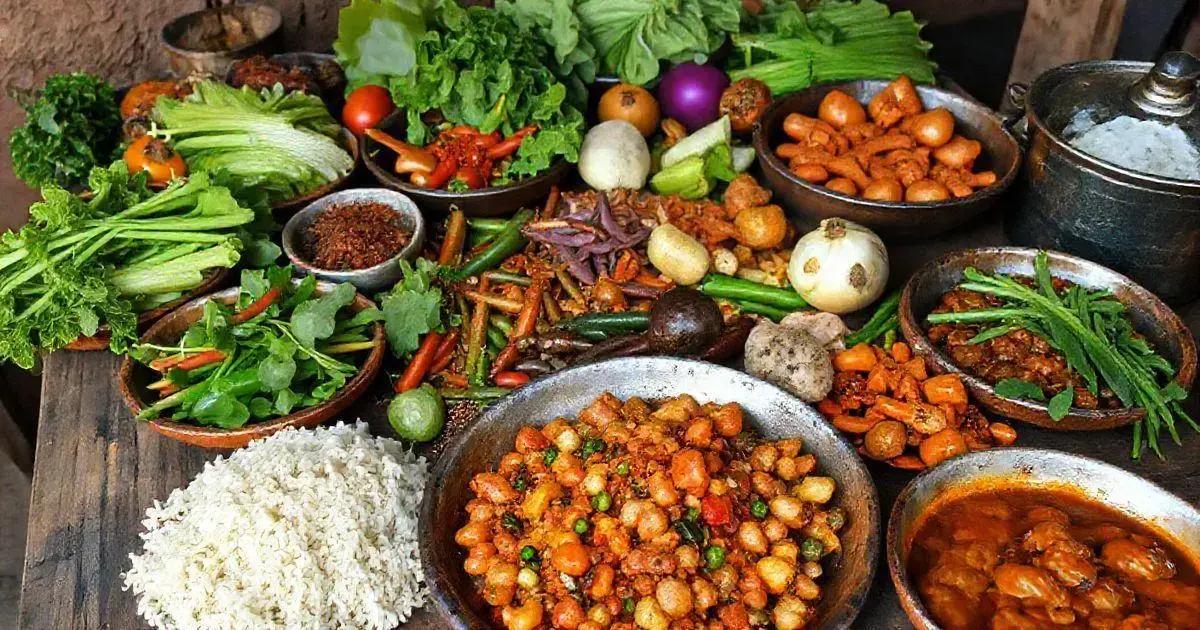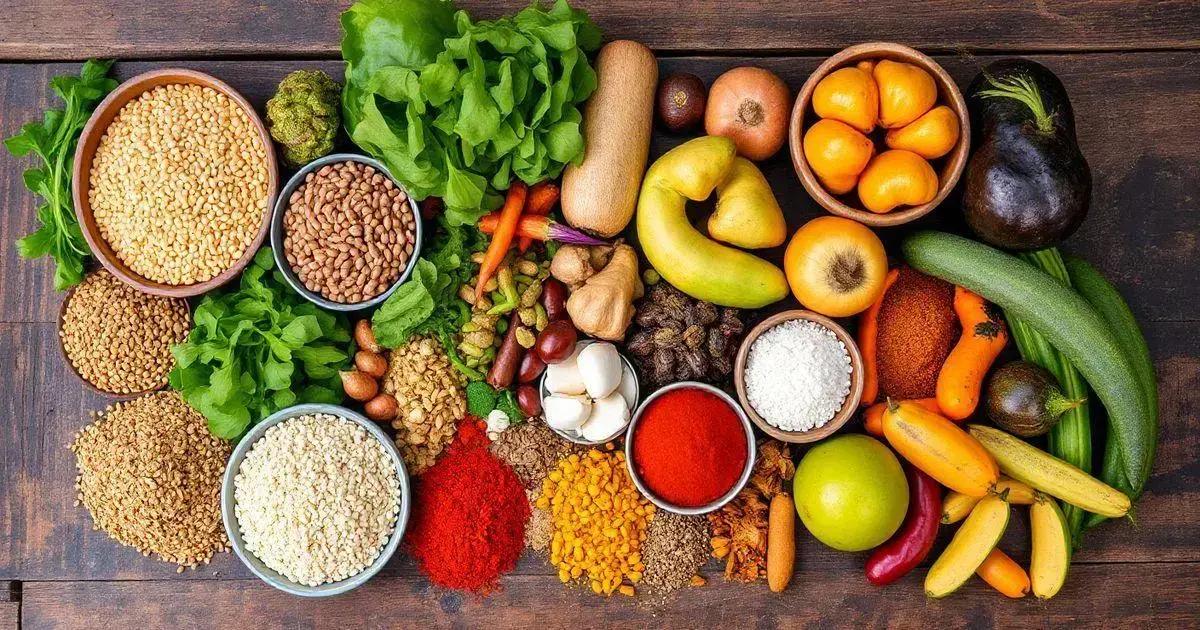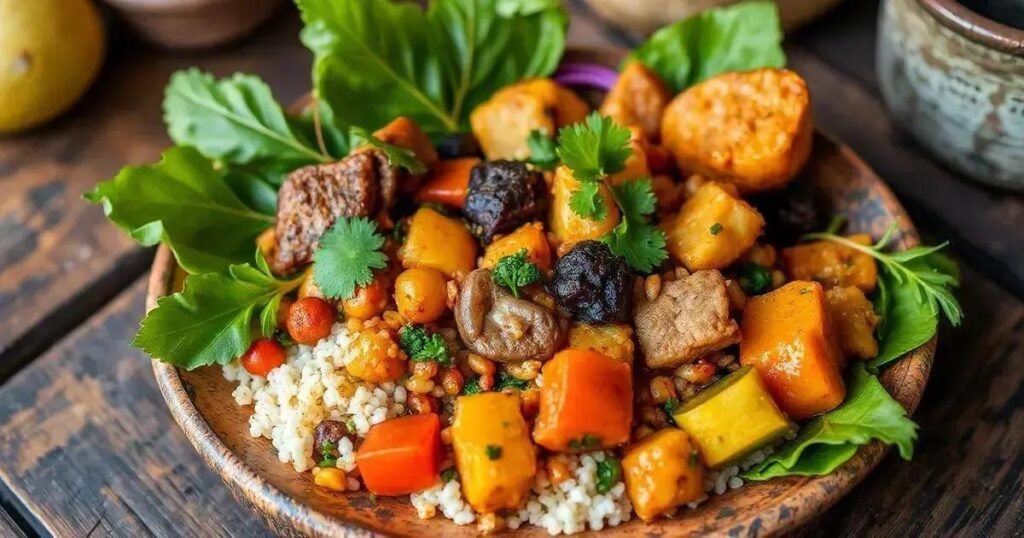To prepare the African recipe correctly, focus on essential ingredients like fresh vegetables, staple grains, proteins, and vibrant spices. Master common cooking techniques such as steaming and grilling, and embrace the traditions by serving meals communally for an authentic experience.
Are you eager to learn how to prepare the African recipe correctly? This guide will help you master the authentic flavors and techniques essential for African cuisine. Cooking African dishes not only enriches your palate but also connects you with the vibrant cultures of the continent. In this article, we’ll cover a step-by-step guide to authentic African cooking and highlight the essential ingredients you’ll need to get started.
Step-by-step guide to authentic African cooking

Learning how to prepare the African recipe correctly begins with understanding the foundation of authentic African cooking. This style of cooking varies from region to region, incorporating diverse ingredients, spices, and cooking methods.
Essential Cooking Techniques
Common techniques in African cooking include steaming, grilling, and stewing. Each method can enhance the natural flavors of ingredients. For instance, steaming often preserves the nutrient content of vegetables, while grilling can add a delicious smoky taste to meats.
Preparing Your Ingredients
Using fresh ingredients is vital in African cooking. Before you start, gather your fresh produce, grains, and proteins. Some staple ingredients include yam, cassava, and various leafy greens. Be sure to wash all vegetables thoroughly before use.
Portion Control and Flavor Balancing
It’s important to consider portion sizes when preparing a meal. Each dish should contain a balance of carbohydrates, proteins, and vegetables for a nutritious plate. Spices like cumin, ginger, and paprika are essential for achieving authentic African flavors, so don’t hold back on seasoning your dishes.
Cooking Steps to Follow
1. Start by marinating your proteins with spices. This enhances the taste.
2. Cook your grains and starches first, as they take the longest.
3. Prepare your vegetables by sautéing them with spices for about 10-15 minutes until tender.
4. Combine all components for a flavorful and hearty meal.
Serving Suggestions
Serving is as important as cooking. Traditionally, meals are often served on a communal plate, encouraging sharing and connection over food. You might want to accompany your dish with a side of salsa or sauce to enhance the flavors.
Try Variations Based on Regions
Different African regions have unique dishes. For example, East Africa tends to use more spices and coconut, while North Africa often incorporates dried fruits and nuts. Explore various styles to elevate your cooking!
Essential ingredients for African recipes

To create authentic African dishes, several essential ingredients are crucial. Each ingredient plays a significant role in developing the unique flavors and textures that characterize African cuisine.
Staple Grains
Grains are a cornerstone of many African recipes. Couscous, rice, and ugali (a maize porridge) are commonly used. They serve as the base for various dishes, helping to create a satisfying meal.
Vegetables
Fresh vegetables add color and nutrition. Important vegetable choices include spinach, tomatoes, and carrots. Leafy greens, such as kale and collard greens, are also essential, especially in stews and stir-fries.
Proteins
Proteins are vital for a balanced diet. Common sources include chicken, beef, and fish, as well as plant-based options like beans and lentils. These proteins form the heart of many African dishes and should be seasoned well to enhance their flavor.
Spices and Herbs
Spices bring depth to the dishes. Essential spices include coriander, cumin, and ginger. Herbs such as parsley and cilantro are often used fresh to brighten meals. Do not forget the importance of chili peppers in many dishes for adding heat.
Fats and Oils
Fats are essential for flavor and texture. Common choices include palm oil and peanut oil. These oils are often used in cooking and dressing salads, giving dishes their characteristic richness.
Fruits
Fruits are often incorporated into African recipes. Tropical fruits like mangoes, pineapples, and bananas can be used in salads or as desserts, adding natural sweetness and freshness to meals.
Choosing the right combination of these essential ingredients will greatly impact your ability to prepare authentic African recipes correctly. Each element works together to create the delectable tastes found in African cooking.
Embracing Authentic African Cooking
Learning how to prepare the African recipe correctly involves understanding the essential ingredients and cooking methods that define this rich cuisine. By following the step-by-step guide and incorporating the necessary elements, you can create flavorful and vibrant dishes that reflect the diversity of African culture.
From staple grains to fresh vegetables, proteins, and aromatic spices, each ingredient contributes to a unique culinary experience. Embrace the traditions and techniques of African cooking, and you’ll not only enjoy delicious meals but also gain a deeper appreciation for the continent’s culinary heritage.
So, gather your ingredients, ignite your passion for cooking, and venture into authentic African recipes to experience a world of flavors!
FAQ – Frequently Asked Questions about African Recipes
What are the essential ingredients for African recipes?
Essential ingredients include staple grains like rice and couscous, fresh vegetables, proteins such as chicken and beans, spices like cumin and ginger, and tropical fruits.
How can I ensure my African dishes have authentic flavors?
To achieve authentic flavors, use fresh ingredients, employ proper cooking techniques, and balance spices according to regional recipes.
What cooking techniques are commonly used in African cuisine?
Common cooking techniques include steaming, grilling, and stewing. Each method enhances the natural flavors of the ingredients.
Can I customize African recipes based on my taste?
Absolutely! African recipes are versatile. Feel free to adjust the spices and ingredients according to your personal preferences while maintaining the essence of the dish.
Is it difficult to find African ingredients?
Many essential African ingredients can be found in international or specialty grocery stores. You can also find them online.
What are some common African dishes I should try?
Some popular African dishes include Jollof rice, Tagine, Injera, and Bobotie. Each dish offers a unique taste of African culinary tradition.













